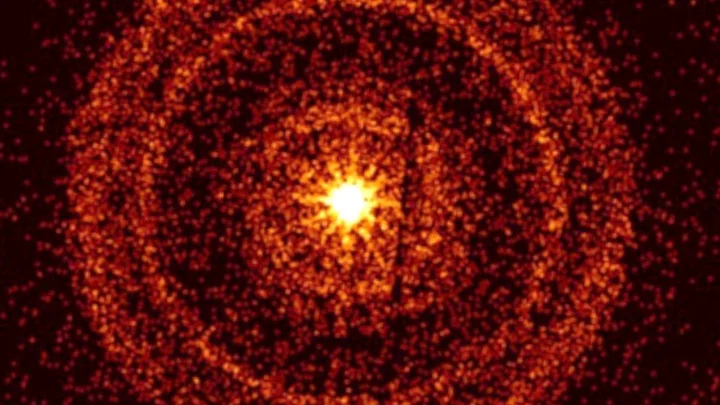It’s the brightest explosion ever seen in the universe, but until now it’s been a mystery that couldn't be explained.
Telescopes observed an enormous blast in October which was regarded as the biggest of all time.
It was identified as a gamma-ray burst, named GRB 221009A, which came as a result of a massive star collapsing into a black hole. At the time it was a mystery as to why the explosion shone so brightly.
Now, further research published in the journal Science Advances has uncovered the reason it was so bright is due to the fact it was facing directly at us and also pulled stellar material along with it.
Sign up to our free Indy100 weekly newsletter
Hendrik Van Earthen from the University of Bath said: “The slow fade of the afterglow is not characteristic of a narrow jet of gas, and knowing this made us suspect there was an additional reason for the intensity of the explosion, and our mathematical models have borne this out.
“Our work clearly shows that the GRB had a unique structure, with observations gradually revealing a narrow jet embedded within a wider gas outflow where an isolated jet would normally be expected.”
The research into GRB 221009A has the potential to further the study of huge gamma-ray bursts, which can produce as much energy as the Sun will in its entire lifetime in the space of just a few seconds.
“GRB 221009A represents a massive step forward in our understanding of gamma-ray bursts, and demonstrates that the most extreme explosions do not obey the standard physics assumed for garden variety gamma-ray bursts,” Brendan O’Connor, GW graduate student and lead study author, said.
“GRB 221009A might be the equivalent Rosetta stone of long GRBs, forcing us to revise our standard theories of how relativistic outflows are formed in collapsing massive stars.”
Have your say in our news democracy. Click the upvote icon at the top of the page to help raise this article through the indy100 rankings.

